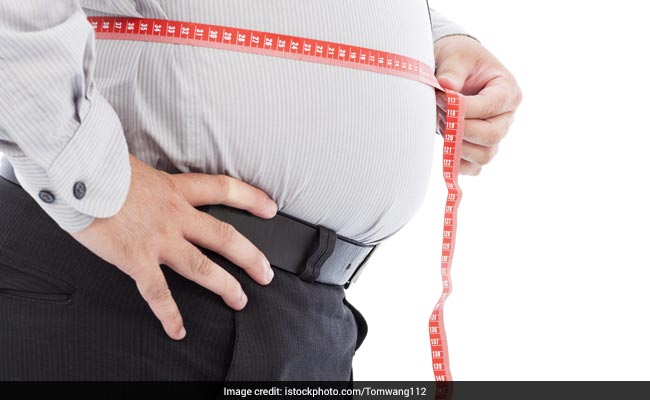Why it’s important to understand the difference between bloating and fat.
Wiki Article
Understanding the Distinction In Between Bloating and Fat: an Important Guide for Digestive Wellness
Recognizing the difference between bloating and excess body fat is vital for anyone worried about gastrointestinal health and wellness. While bloating presents as a short-term and typically uneasy condition, commonly linked to dietary practices or digestion disturbances, body fat stands for an extra long-term adjustment in one's body. This distinction is not just scholastic; it carries substantial implications for just how individuals come close to signs and therapy. As we discover the nuances of these 2 sensations, the value of recognizing their respective reasons and monitoring techniques becomes increasingly noticeable. What are the useful steps one can take to address these concerns successfully?Defining Bloating and Fat
Bloating and fat are two unique physical phenomena that can considerably affect a person's comfort and body photo. Bloating is typically a temporary event and can change throughout the day, often solving with way of living adjustments or medical treatments.In contrast, body fat is a much more long-term and stable element of human physiology, primarily acting as a power book and playing essential roles in hormonal agent policy and insulation. Body fat is categorized into two types: subcutaneous fat, which exists just beneath the skin, and visceral fat, which surrounds interior organs. While excess body fat can cause health issues, it is necessary for total physical features.

Root Causes Of Bloating

Furthermore, food intolerances, such as lactose or gluten intolerance, can lead to bloating when the body has a hard time to process specific compounds - bloating and fat. Eating also rapidly or taking in carbonated beverages can additionally worsen the issue, as these habits introduce excess air into the digestive system
Way of life elements, consisting of stress and anxiety and lack of physical activity, can further add to bloating by impacting gut motility. Particular clinical conditions, such as cranky bowel disorder (IBS) or gastrointestinal blockage, may also lead to persistent bloating. Comprehending these reasons is crucial for properly handling and minimizing bloating, permitting individuals to make informed nutritional and way of life selections that sustain their digestive system wellness.
Signs of Bloating vs. Fat
Distinguishing in between the symptoms of bloating and excess fat is crucial for comprehending one's body and attending to discomfort efficiently. Bloating typically provides as a sensation of fullness or stress in the abdominal area, usually accompanied by visible distension.
In comparison, excess fat materializes in a different way. While it might contribute to a sense of heaviness, find it generally does not create the acute pain associated with bloating. Instead, excess fat has a tendency to build up slowly, leading to a modification in physique and size over time. People may observe a rise in body area, specifically around the midsection, yet this does not normally present with the instant sensations of volume or distension.

Recognizing these differences is essential. While bloating is usually short-term and linked to dietary factors or digestive concerns, excess fat indicates a much more persistent condition requiring way of life modifications. Comprehending these signs and symptoms empowers people to seek suitable options customized to their particular problems relating to digestion health and wellness and body structure.
Handling Bloating
Efficient administration of bloating needs a diverse strategy that resolves both dietary selections and way of life practices. Initially, it is vital to determine and eliminate details foods that might activate bloating, such as those high in fiber, this page gluten, lactose, or particular fermentable carbs (FODMAPs) Maintaining a food journal can help pinpoint these triggers and overview changes.Integrating smaller, more constant meals instead of large ones can likewise minimize bloating, as it reduces the digestion process (fat and bloating). Remaining well-hydrated is critical, as adequate liquid consumption help digestion and helps stop irregularity, which can contribute to bloating
Additionally, taking part in routine exercise advertises gastrointestinal motility and minimizes bloating. Simple exercises, such as walking or yoga exercise, can effectively reduce discomfort. Conscious eating methods, such as consuming gradually and eating food extensively, may better enhance digestion and limitation air ingesting.
When to Look For Assistance
Recognizing when to seek medical assistance for bloating is crucial, as persistent or severe signs may indicate an underlying health and wellness issue. If bloating is come with by additional worrying signs and symptoms such as significant stomach discomfort, unusual weight-loss, anal bleeding, or continuous nausea or vomiting and throwing up, it is crucial to seek advice from a medical care professional. These indications might recommend conditions such as cranky bowel disorder, intestinal blockage, and even more severe issues like cancer cells.Moreover, if bloating persists in spite of dietary modifications or non-prescription solutions, it warrants additional investigation. Individuals with a background of gastrointestinal problems must be especially attentive, as their risk for complications may be higher. In addition, if bloating takes place following the usage of details foods, it may show food intolerances or allergies that require dietary modifications or testing.
Final Thought
In summary, comparing bloating and excess body fat is essential for digestive system wellness and total wellness. Bloating, a temporary problem often connected to dietary factors and digestive concerns, contrasts sharply with the secure build-up of body fat. Recognizing the signs and underlying reasons for each can help with ideal management techniques. People news experiencing persistent or serious signs and symptoms ought to seek specialist advice to address potential health issues successfully. Recognizing these distinctions is important for educated decision-making relating to health and wellness and lifestyle.Report this wiki page